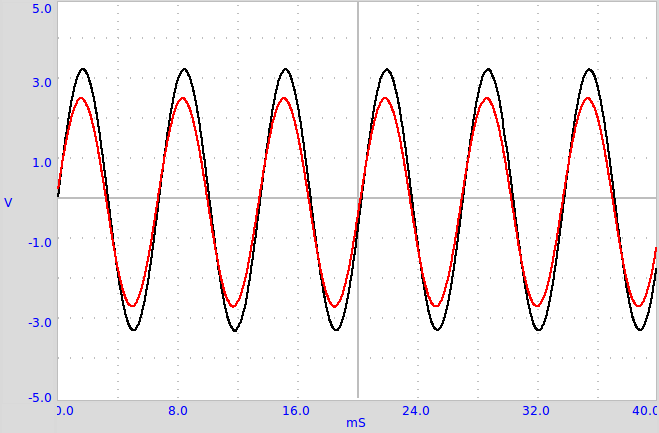Resistance of water, using AC
Resistance of water is an indication of it's purity. Water conducts mostly due to the dissolved salts. If you have never tried measuring the resistance of ordinary tap water try doing it with a multimeter. Are you getting a stable reading ?
Objective
Measure the resistance of ionic solutions, using AC voltages, using normal tap water.
Procedure
- Make connections as shown in the diagram
- Choose the resistor comparable to that of water, start with 10k.
- Enable A1 and A2 with the amplitude and frequency display options.
Calculate the resistance using the method of comparing with a known resistance. Current flowing I = (VA2)/(R1)
Resistance offered by water Rw = (VA1 − VA2)/(I) = (VA1 − VA2)/(VA2) × R1.

Discussion
The experiment may be repeated using DC from PV1. Use the DC displays of A1 and A2 while using DC. With DC, the resistance of the liquid changes with time, but AC gives a steady reading. When done using water in a cup with two wire ends dippped in it, the resistance does not depend much on the distance between the electrodes, the area of the electrode is having some effect. To find out the resistivity of water we need to use a column of water in a tube, with electrode plates at both ends.
The resistance depends on the ion concentration and presence of impurities in the water used. Try adding some common salt and repeat the measurements.
Why is the behavior different for AC and DC ? What are the charge carriers responsible for the flow of electricity through solutions ? Is there any chemical reaction taking place ?